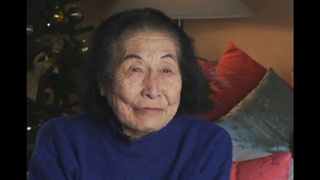Interviews
Politics in ethnic studies
At first I was the Chair of Asian American Studies and then I became the Dean of Ethnic Studies. What had happened is the first year, Hayakawa had put in his choice of Administrator who was a kind of a liberal in the administration, Political Science.
But even as a liberal, you know, he was resented by the Ethnic Studies faculty because he was imposed by Hayakawa. And it ended up with Hayakawa firing everybody in the Black Studies Department, particularly because they had a course in Black Journalism. And they published a paper called “Black Fire,” and they didn’t, they said what they believed about Hayakawa, and it was not very complimentary. So he ended up firing everybody in the Black Studies Department, then he had a dilemma. And rest of the Deans, at the Counsel of Academic Deans, got together. And the Social Science Dean knew me. So they recommended that I become the Dean. And so, Hayakawa approached me and I says, “Well, you know, I got a sabbatical, and I’m going to Japan.” And he says, “Would you take the job anyway?” And I said, “I’ll think about it.”
Well, when he was away to Japan, I agreed with the Vice President that I would take the job. But first I needed to have a deal with the rest of the Black Studies and the La Raza and the Native American, and I wanted to have a clear understanding of what I was going to do. And my take on the whole thing was to protect the development of all the departments independently as much as possible. But I told them that they had to protect my position because I have to interact with the administration. Then I made the same kind of deal with the Vice President, who I knew personally, who was one of the undergraduate students at the University of Washington when Gordon was a graduate student. So I had that sort of kinship tie. And when I came to San Francisco State, they sort of looked out after me. And I made a deal with him. I says, “You know, when I say I want something for the Ethnic Studies program, you just got to give it to me, because I need to keep order in there.” And so I worked on my personal ties with him to get the kind of concessions we needed in Ethnic Studies to do what we needed to do.
Date: January 7, 2004
Location: California, US
Interviewer: Art Hansen
Contributed by: Watase Media Arts Center, Japanese American National Museum.
Explore More Videos

Teacher who helped with lisp
(b.1926) Democratic politician and three-term Governor of Hawai'i

Kids working hard
An expert researcher and scholar on Japanese immigrant clothing.

First day of school
An expert researcher and scholar on Japanese immigrant clothing.

Grandmother's influence on decision to go to Japan
(b.1942) Japanese American ceramist, who has lived in Japan for over 30 years.

Training for football by carrying 100-lb bags of grass over mountains
(b.1925) Nisei of Okinawan descent. Had a 38-year career in Japan as a baseball player, coach, scout, and manager.

Teaching at the military language school during World War II
(b. 1924) Political scientist, educator, and administrator from Hawai`i

Lesson learned from community college faculty
(b. 1924) Political scientist, educator, and administrator from Hawai`i

Rewards of teaching
(b. 1924) Political scientist, educator, and administrator from Hawai`i

Japanese school
(b.1924) Japanese Canadian Nisei. Interpreter for British Army in Japan after WWII. Active in Japanese Canadian community

Strict school policy of separating boys and girls in Japan
(b.1920) Japanese Canadian Nisei. Established the Ikenobo Ikebana Society of Toronto

Growing up outside of Portland’s Japanese community
(b. 1921) Nisei businessman. Established "Made in Oregon" retail stores

Japanese musical education
(b.1943) Shin-issei grand master of taiko; founded San Francisco Taiko Dojo in 1968.

Education in a Buddhist temple and a country school
(1914-2018) Founder of the largest gladiolus bulb farm in the United States.


Father’s will to have Japanese education
(b. 1922) Canadian Nisei who was unable to return to Canada from Japan until 1952
